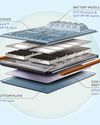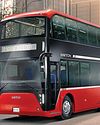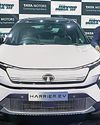
It was May 18, 2002, and the conference hall at the Bengaluru International Exhibition Center (BIEC) was -jammed packed. Lt Gen Rajeev Chaudhry, VSM, Director General, Border Roads Organisation (BRO) rose to address the gathering at Excon, a construction equipment industry event. After the customary pleasantries, he came straight to the point stressing on the significance of roads and highways in the development of a country.
To emphasise his point, Lt Gen. Chaudhry referred to India and South Korea, two nations that won independence from foreign rule around the same time. While India had it on August 15, 1947; South Korea got it a year later. For the first 10 years, he said, the destinies of the two nations remained almost similar with poverty, lack of industrialisation, and lower development indexes. The GDP per capita of both the countries was almost similar at around $82-84 at the start of the 1960s.
However, the economic trajectories of both countries, however, soon began diverged in the subsequent years and decades. Even as the Cold War between US and Russia was beginning to touch new heights, India and South Korea chose two different directions. Under President Park Chung-hee, South Korea embarked on infrastructure development constructing grand highways and expressways across the length and breadth of the country, as it put in place its policy for an export-driven economy. Chung-hee was at the helm till his death in 1979 but during that time, the country's development in the economic and social sphere continued despite the relative lack of natural resources.
هذه القصة مأخوذة من طبعة 15th August 2022 من Autocar Professional.
ابدأ النسخة التجريبية المجانية من Magzter GOLD لمدة 7 أيام للوصول إلى آلاف القصص المتميزة المنسقة وأكثر من 9,000 مجلة وصحيفة.
بالفعل مشترك ? تسجيل الدخول
هذه القصة مأخوذة من طبعة 15th August 2022 من Autocar Professional.
ابدأ النسخة التجريبية المجانية من Magzter GOLD لمدة 7 أيام للوصول إلى آلاف القصص المتميزة المنسقة وأكثر من 9,000 مجلة وصحيفة.
بالفعل مشترك? تسجيل الدخول

Spain's Fersa Group invests in India-based Delux Bearings
Besides theRs100 croreinvestment, the Indian company gets access toadvanced technologies and bearings with arange of applications that willhelpinits global growth strategy, writes Manobhava Baruah.

Tata Autocomp to open compact dual-clutch transmission plant
Amidthe country’s growing need for personal mobility with easy manoeuvrability, comes the demand for vehicles with automatic transmission. Tata AutoCompisready tomovein writes Shruti Mishra.

Pankaj Munjal-backed Hero Motors raises equity from GEF Cap
The company willinvest Rs1,500 crore over thenextthree years andit expects 60 percent ofits turnover to come fromelectric vehicle parts. Itaims to becomea Global EV Solutions Company from India

New age thermoplastics for next-generation EV batteries
Saudi-based global materials major SABIChas developed cutting edgein fire-resistant polymers and flame-retardant materials that comply with various EV battery safety standards across the world.

Switch Mobility to meet growing e-bus demand with fresh capex
Oncourse for abillion-dollar business, the company is exploringa possibility of operating satellite factories across the country to serve different geographies, write ShahkarAbidi and Ketan Thakkar.

Kia India to invest Rs 2,000 crore in EVS, to introduce new e-RV in 2025
New investmentto drive R&D, infrastructure development and manufacturing capabilities. The company willlocally produce EVsin India with possibility of exports as well, writes Mayank Dhingra.

"The government has given enough time for indigenisation but the industry has not taken it seriously"
Amitabh Saran, Founder and CEO, Altigreen, shares his views on problems inthe EV industry and battery localisation solutions with Amit Vijay M.

TATA MOTORS SEES ONE INTWO CARS SOLDAS EVS BY 2030
The company aims to offer wider choices withnew EVs that may straddle a pricebracket of Rs20to 40lakhinthe coming years, writes Ketan Thakkar.

MG Motor India in expansion drive, to invest $100 million
The investment willbe usedtoramp up existing production capacity from1.2to1.4-15lakh units per annum atthe automaker's Halol plantin Gujarat, writes Ketan Thakkar.

"Technology and its multiplier effect are driving business transformations and customer experiences"
Technical Centre India is one of Continental’s largest research and development centres in the world, andasa Centre of Competence’ it also develops customised products for the BRIC countries.